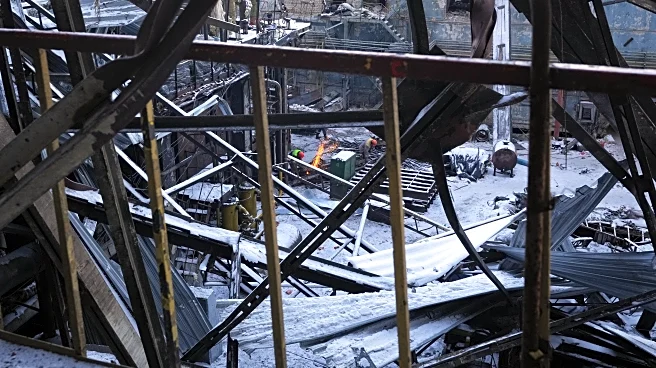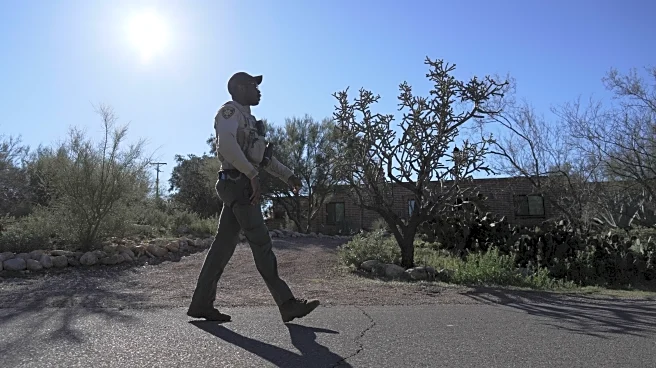Rapid Read • 7 min read
NASA is conducting research on the International Space Station to address health issues caused by microgravity, focusing on head and eye pressure impacts. The research involves using a thigh cuff to counteract fluid shifts that can affect vision and cause symptoms like 'puffy face.' Flight Engineer Kimiya Yui led the study, testing the device on NASA Flight Engineer Mike Fincke. Additionally, the crew is unpacking a SpaceX Dragon cargo spacecraft, which delivered research experiments and life support hardware. The Dragon also brought a reboost kit to maintain the station's altitude. The crew practiced emergency procedures for scenarios like ammonia leaks and fires, ensuring preparedness for potential emergencies.
AD
The health research conducted by NASA is crucial for understanding and mitigating the effects of long-duration space missions on astronauts. Addressing issues like head and eye pressure is vital for ensuring the safety and well-being of crew members during missions to the Moon, Mars, and beyond. The emergency drills enhance the crew's readiness to handle critical situations, maintaining the safety of the space station. The successful operation of the SpaceX Dragon and its reboost capabilities demonstrate advancements in space technology and international collaboration, supporting the ongoing functionality and sustainability of the space station.
NASA plans to continue monitoring the health impacts of microgravity on astronauts, using real-time data to develop effective countermeasures. The Dragon's reboost kit will be tested in September, with the Canadarm2 robotic arm inspecting the hardware before activation. The crew will maintain regular emergency drills to ensure preparedness for any unforeseen incidents. These activities contribute to the broader goals of space exploration, supporting future missions and enhancing international cooperation in space research.
AD
More Stories You Might Enjoy











